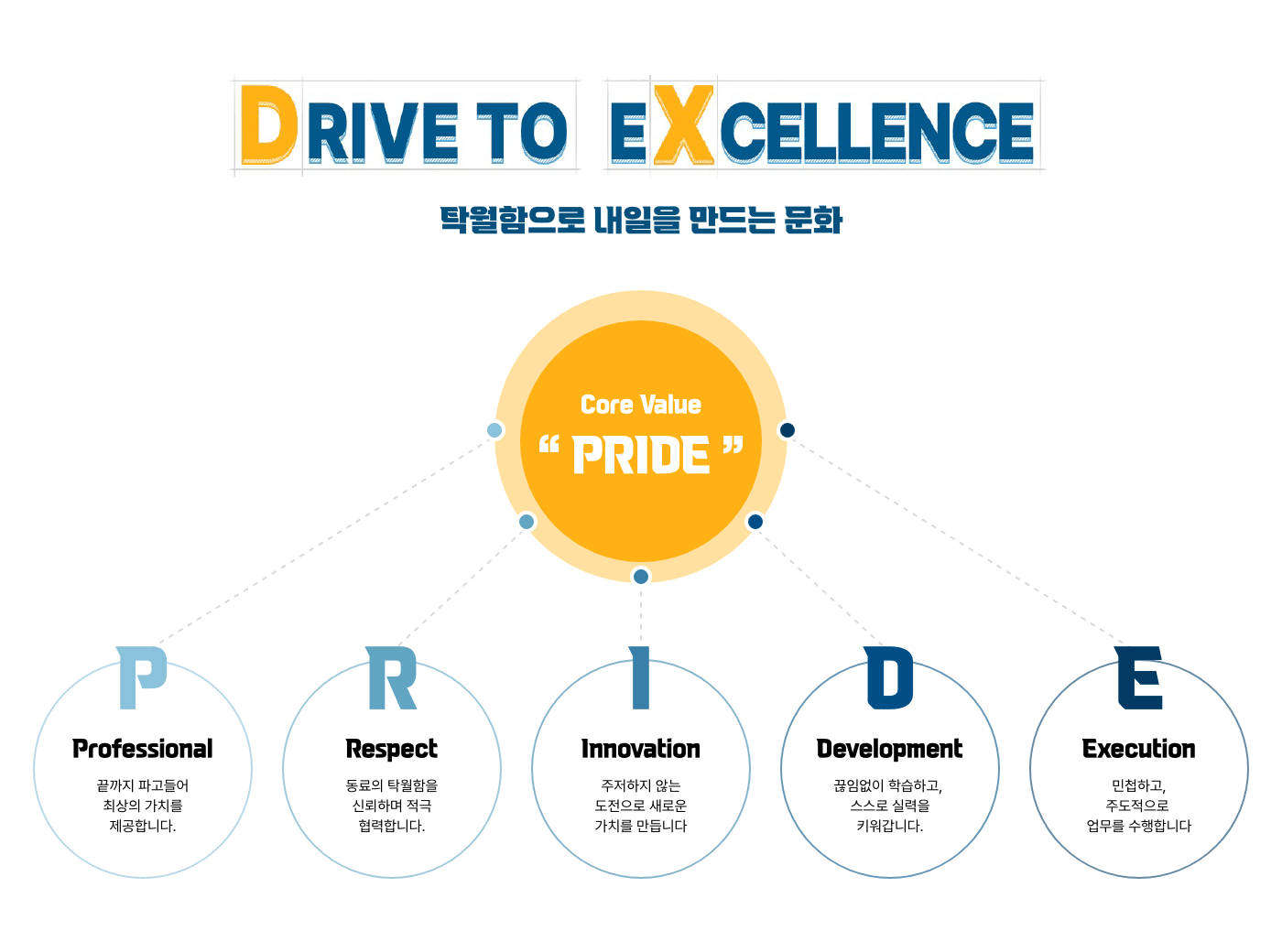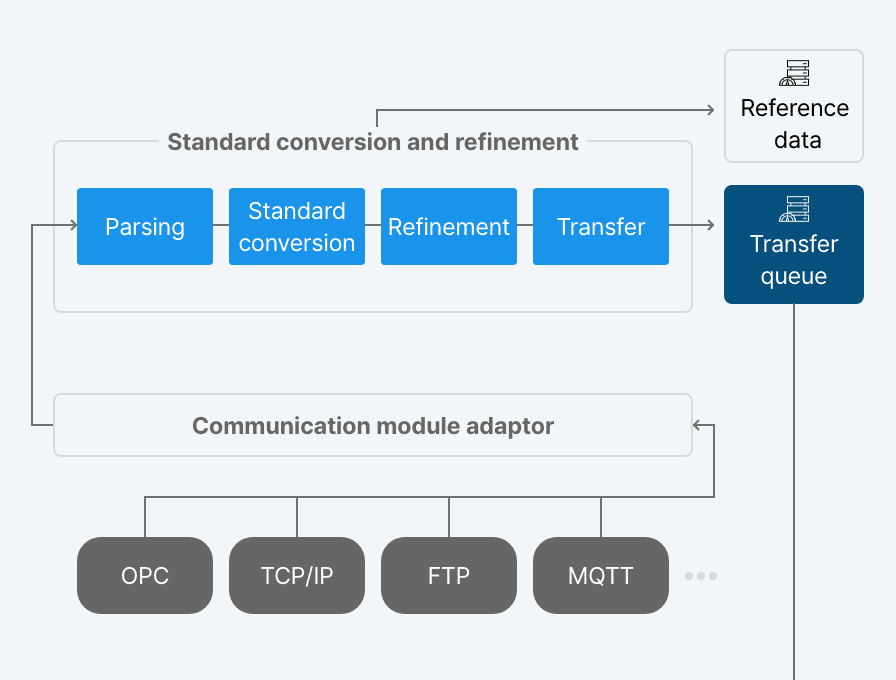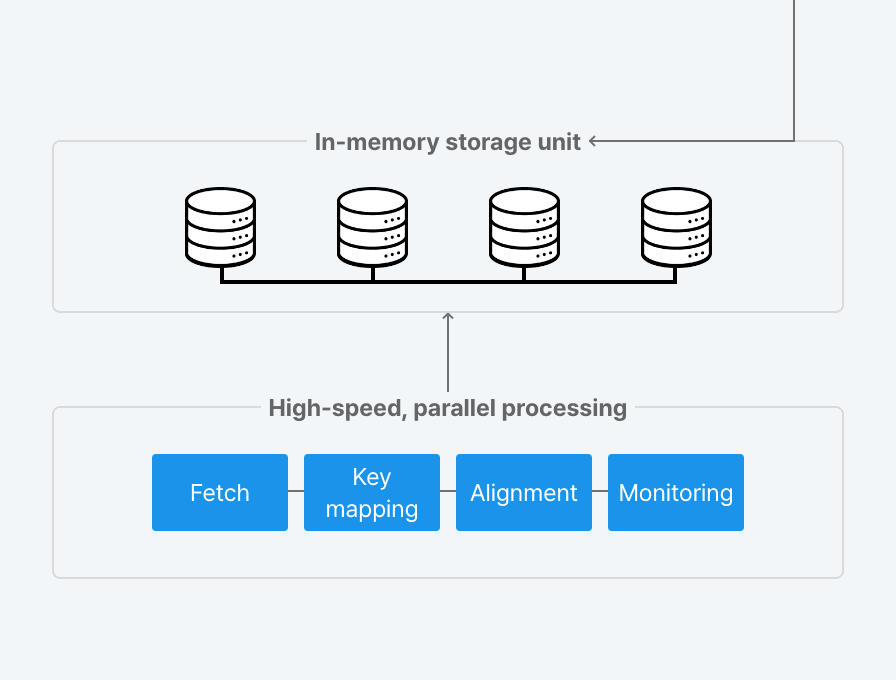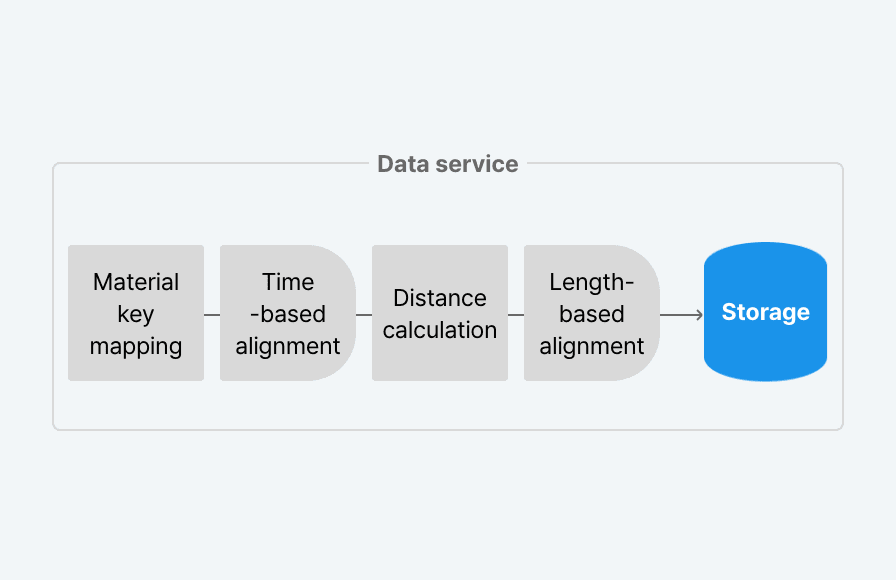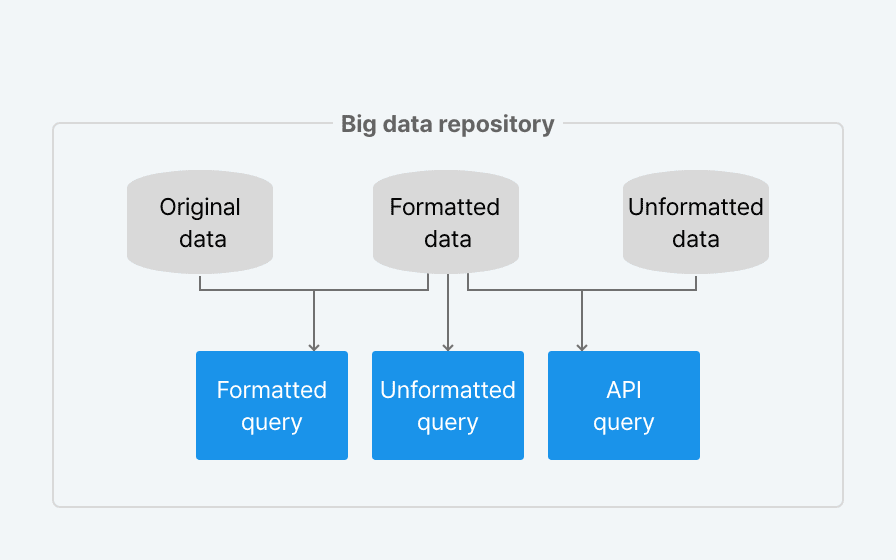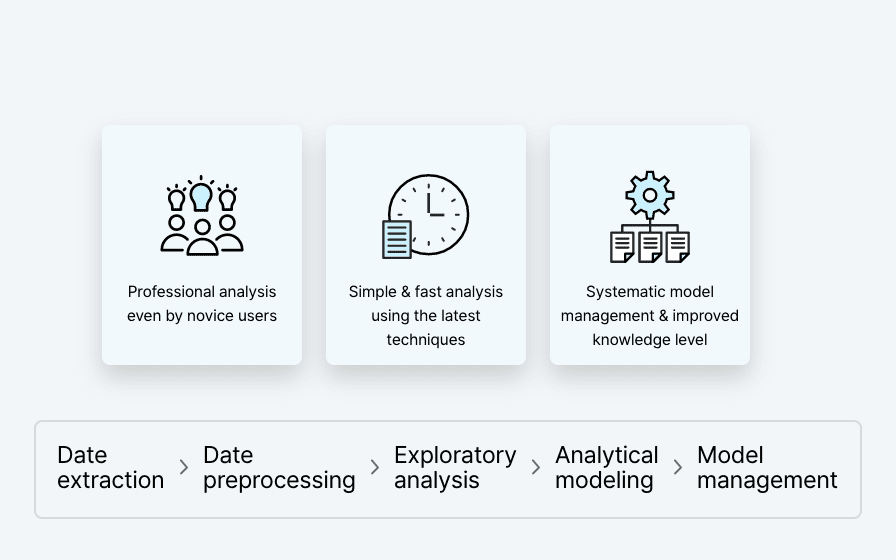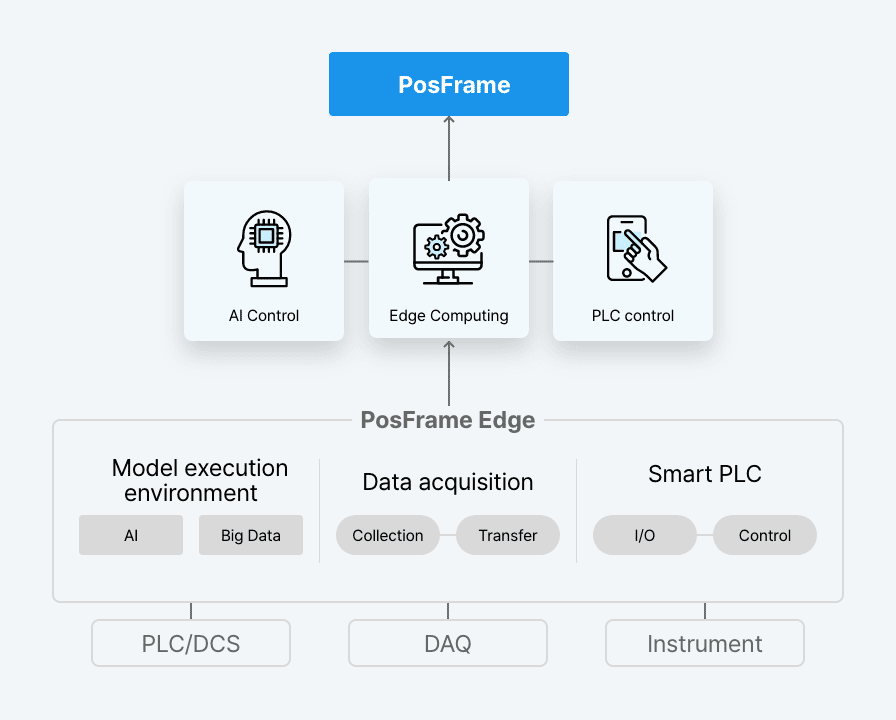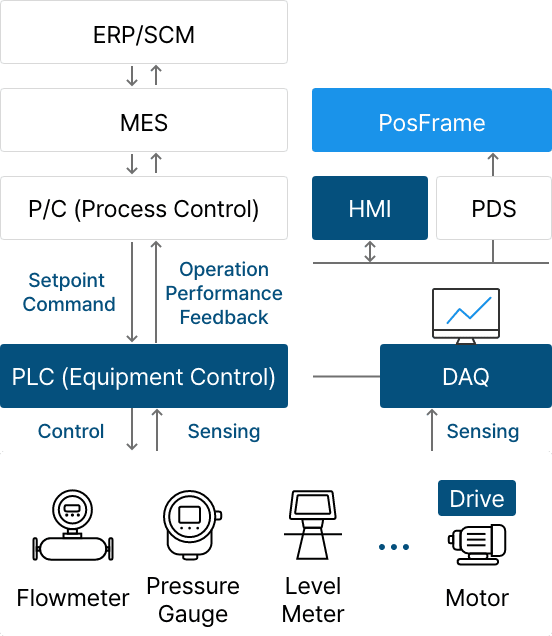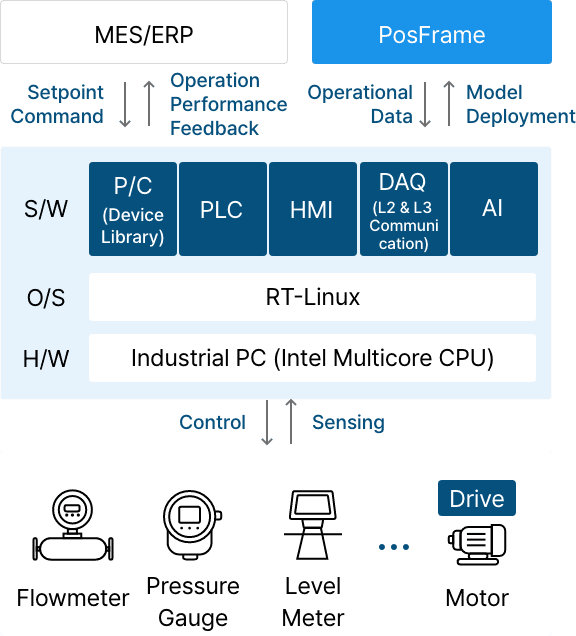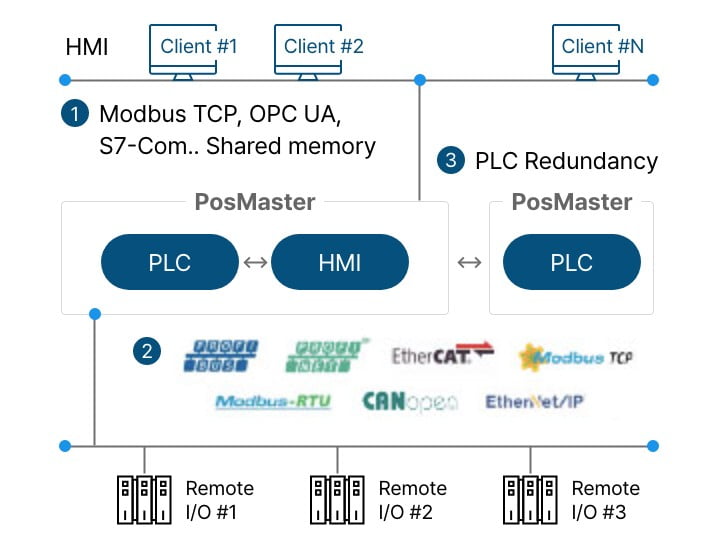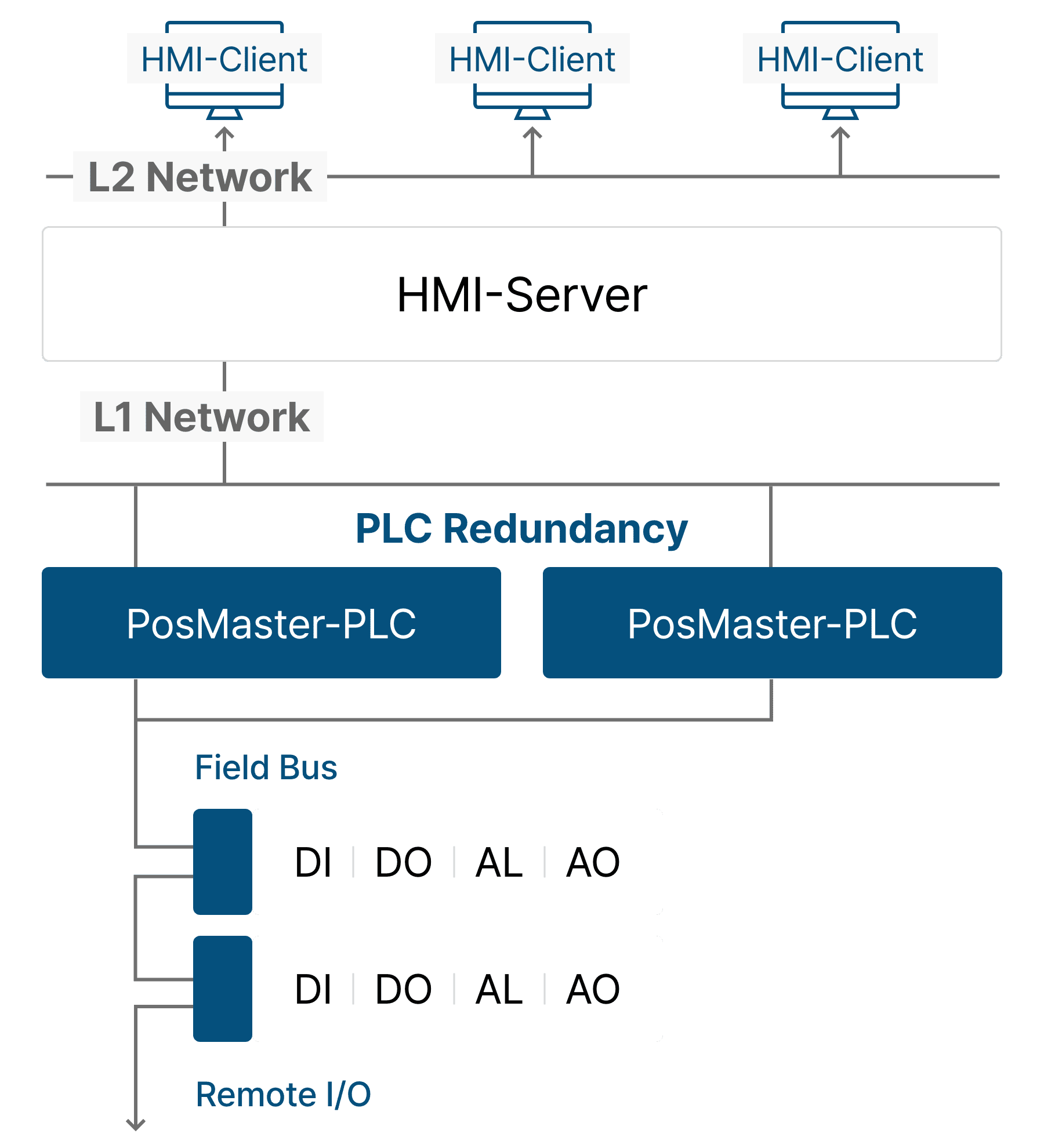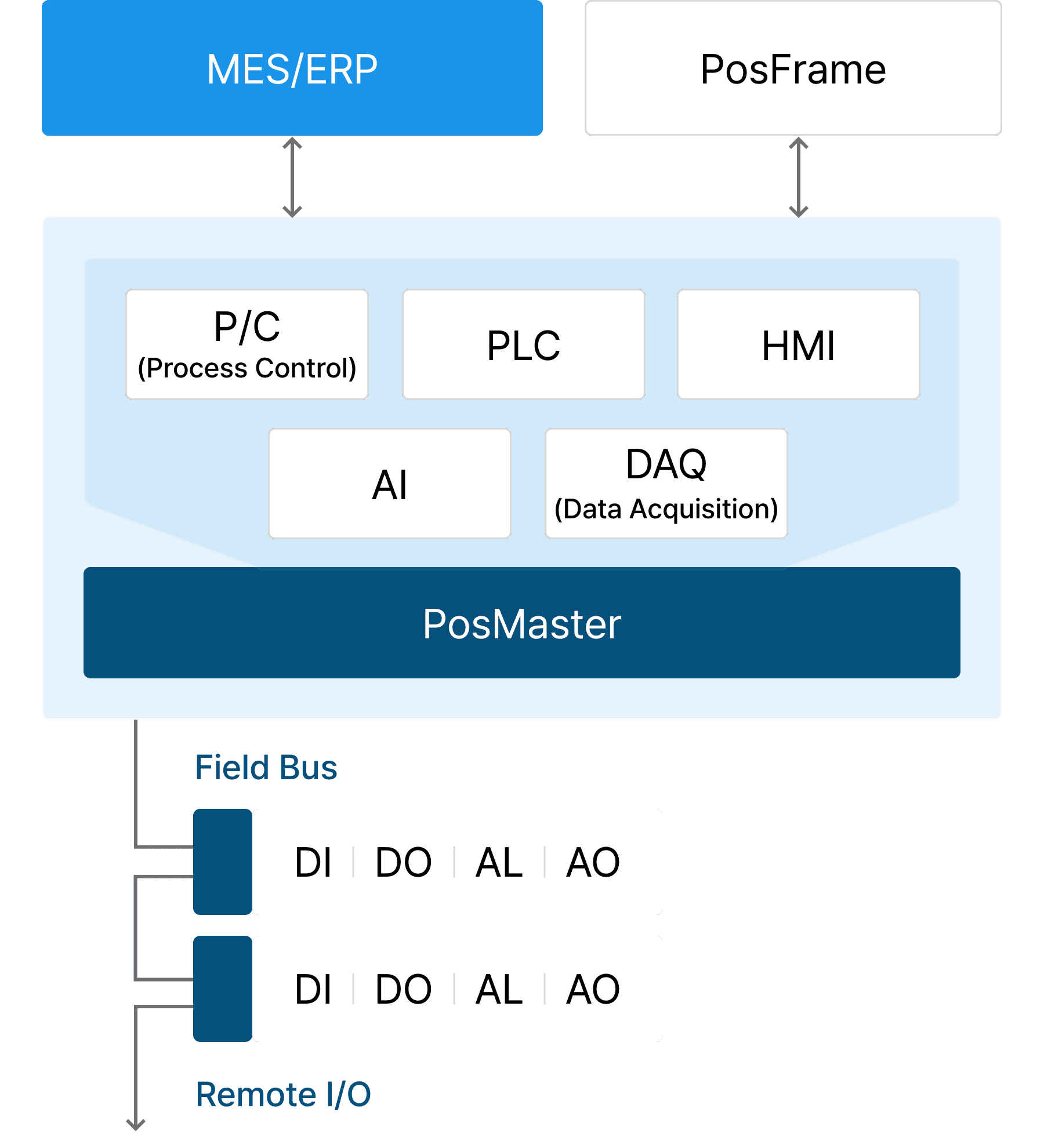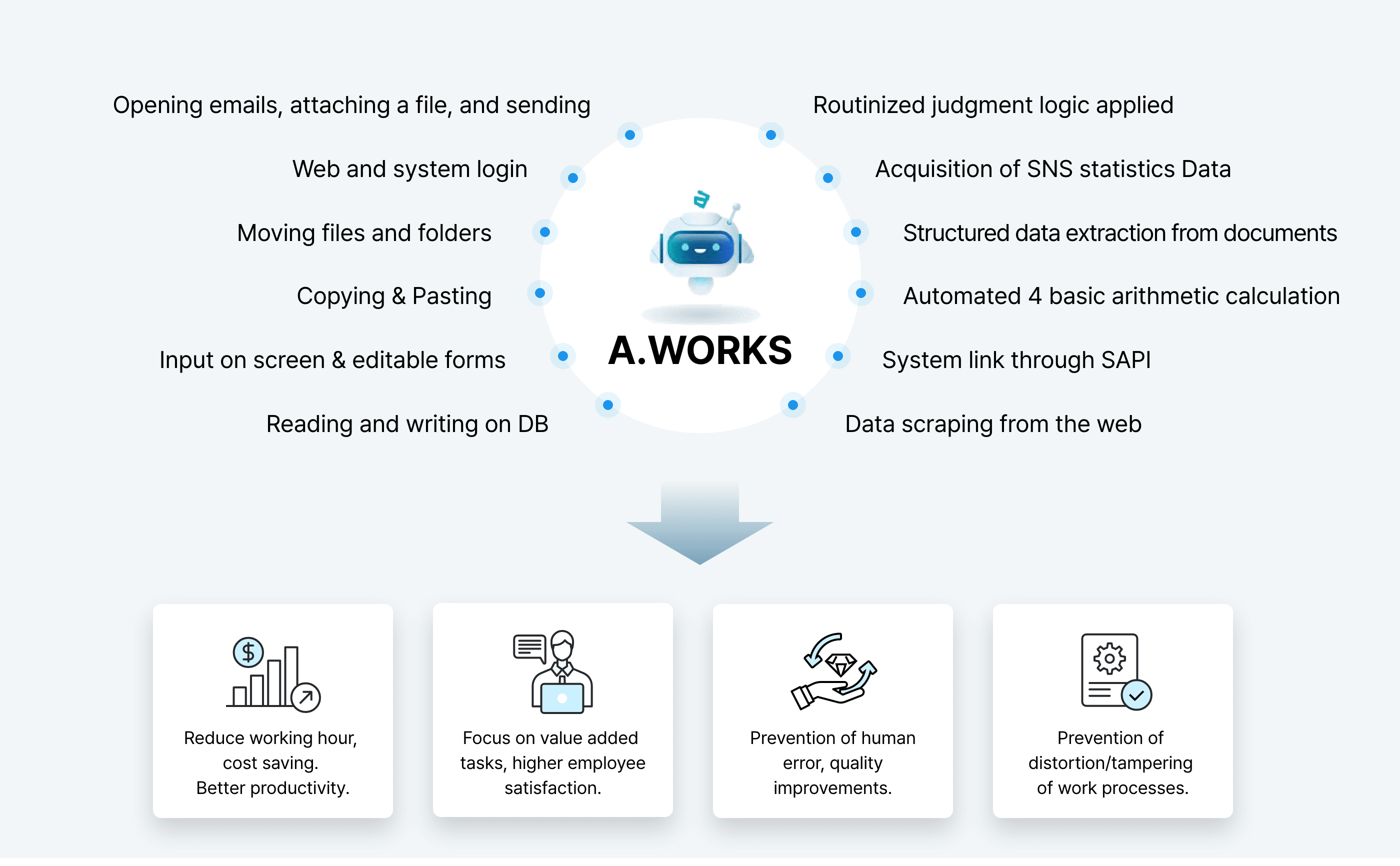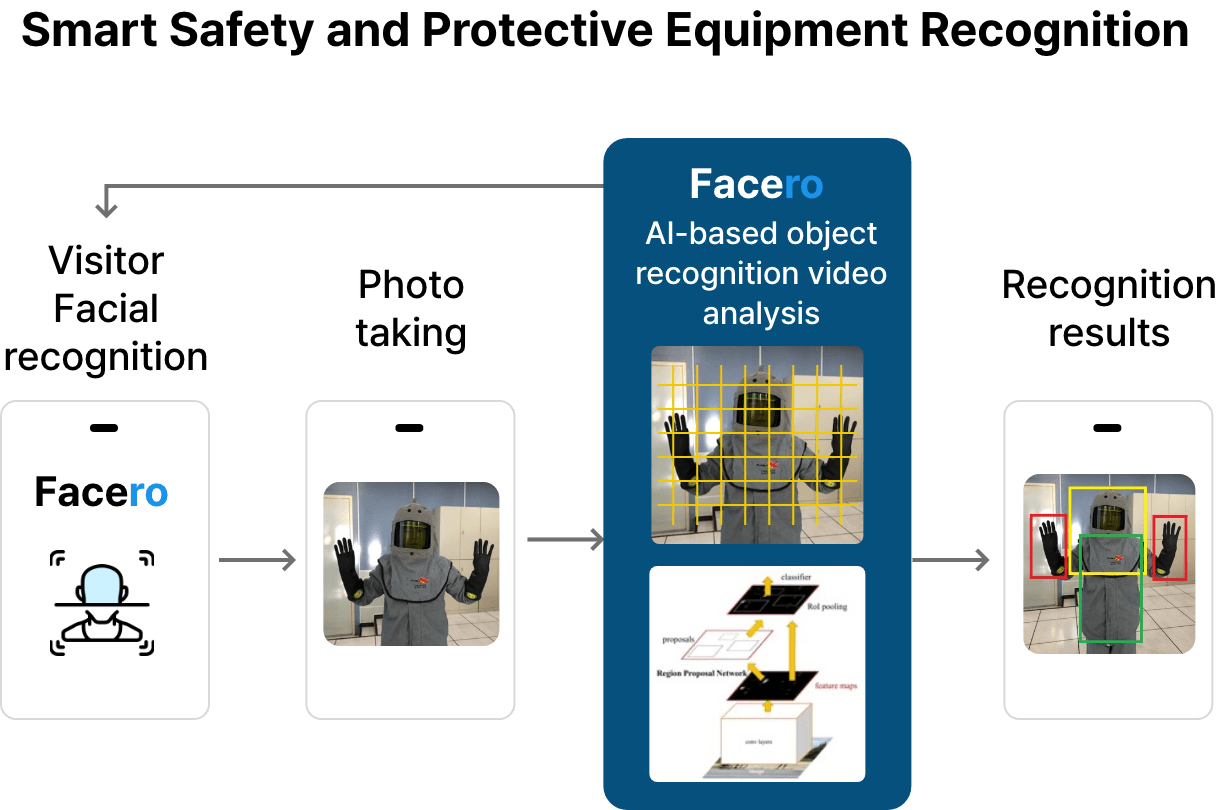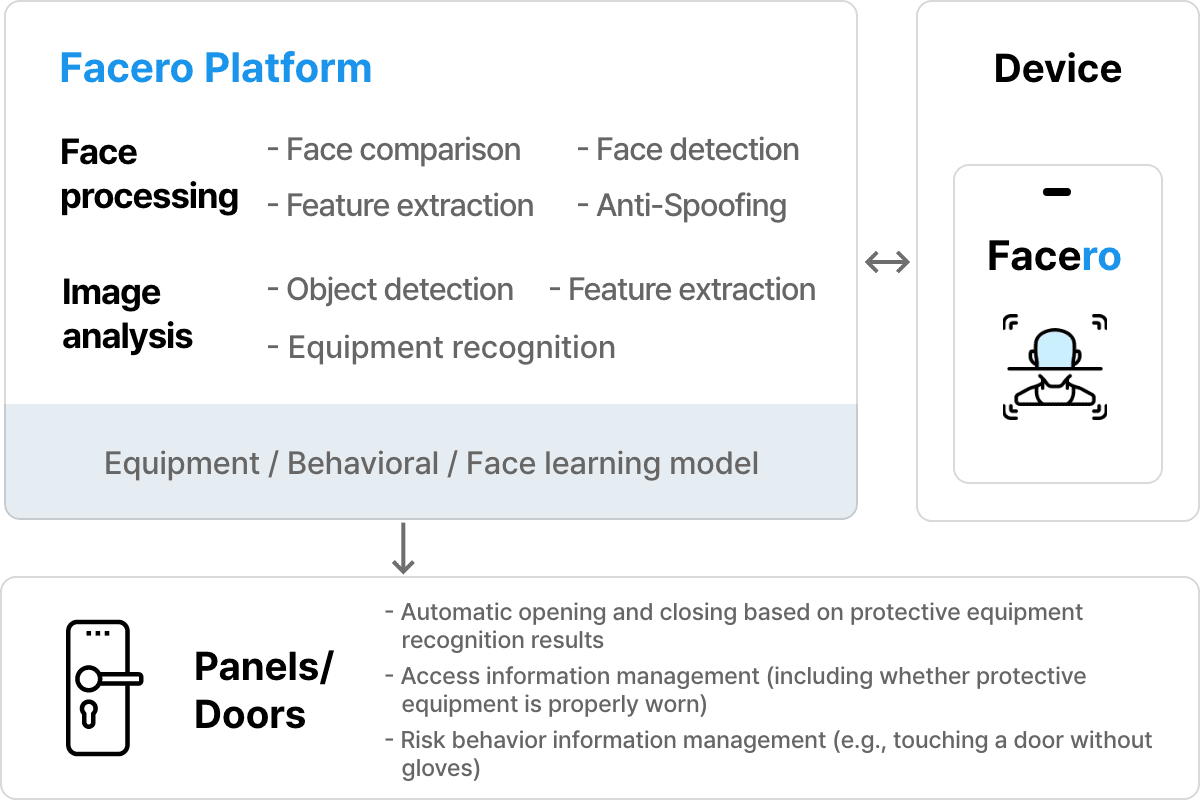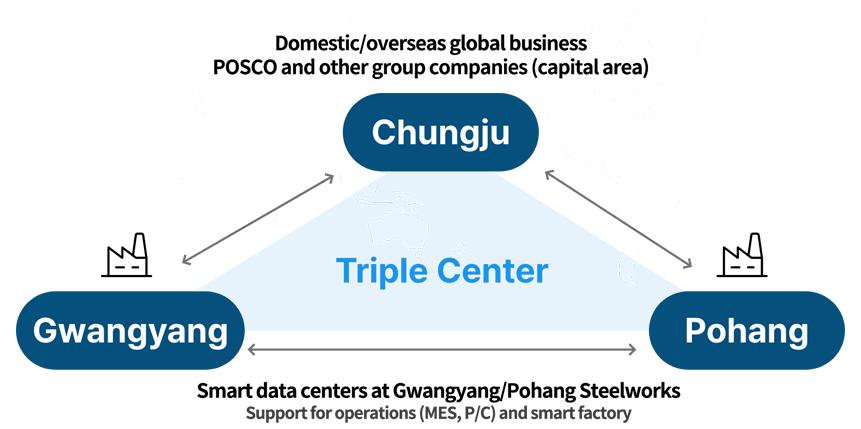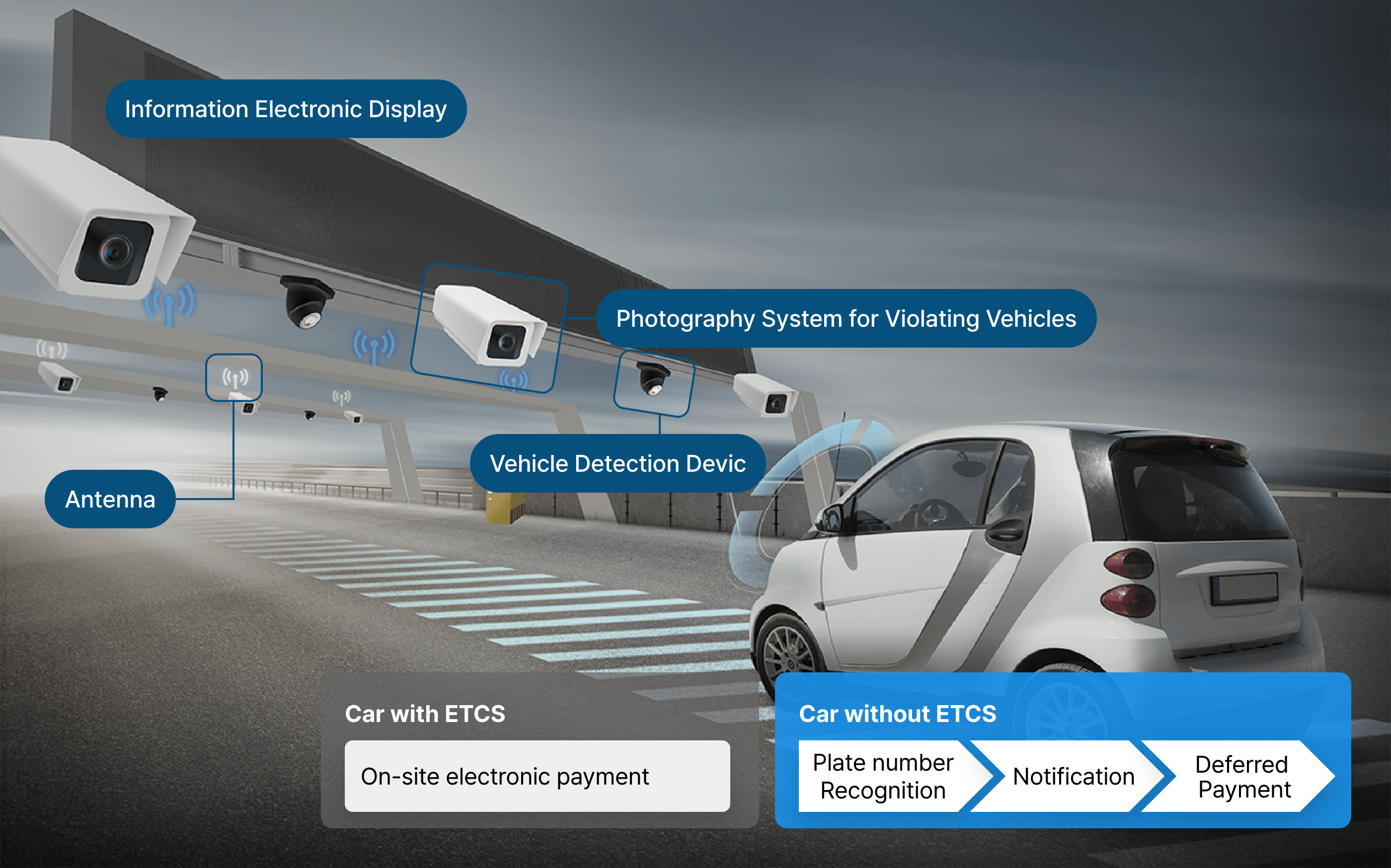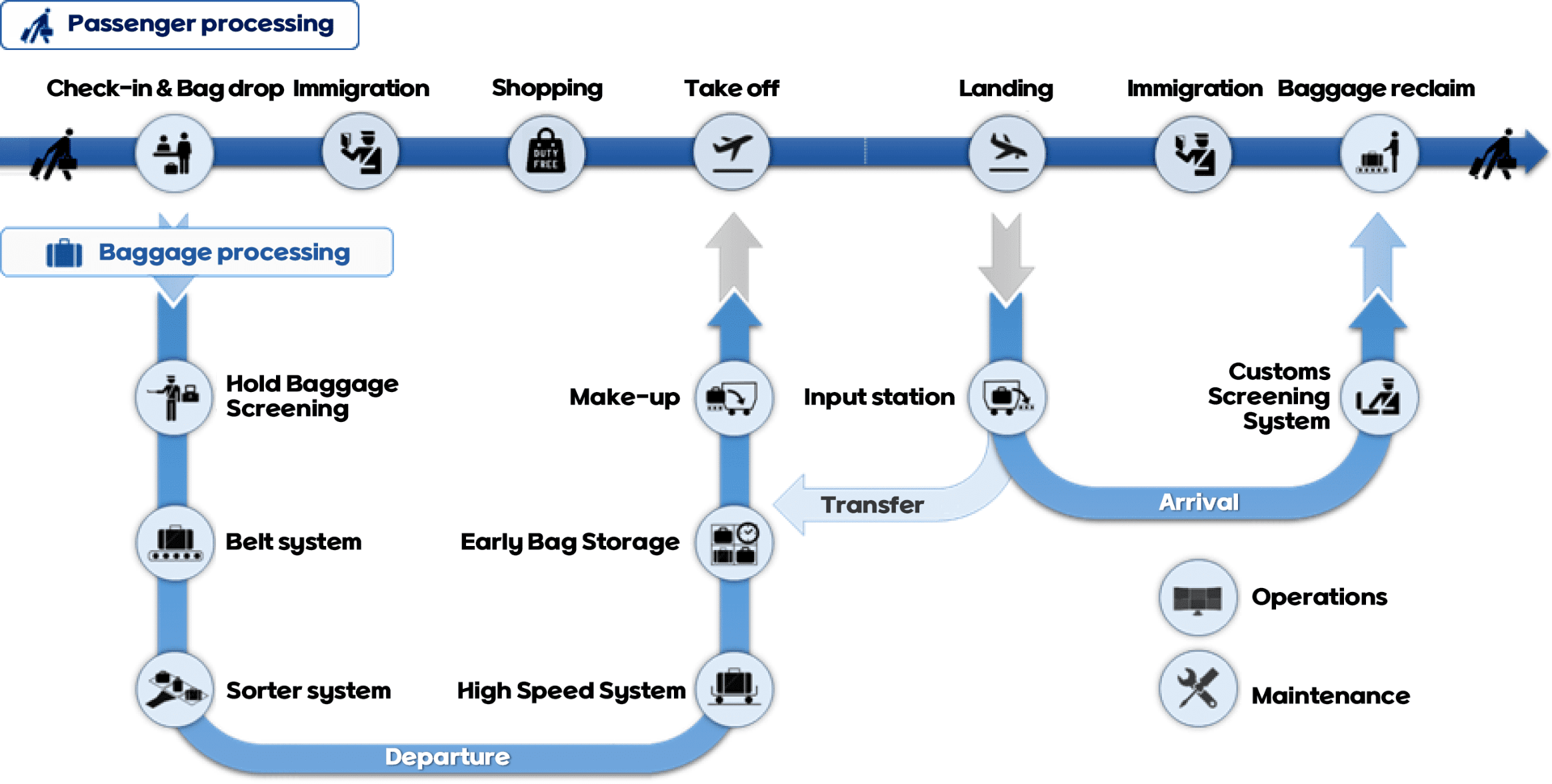- HOME
- PR
- NEWS
Prev
POSCO DX Poised To Support Carbon Neutrality at Manufacturing Sites with DX TechnologyNext
POSCO DX promotes field application of 'physical AI' specialized for industrial sitesPOSCO DX to Derive ‘Intelligent Factories’ by Expanding Industrial Robots
2024.07.19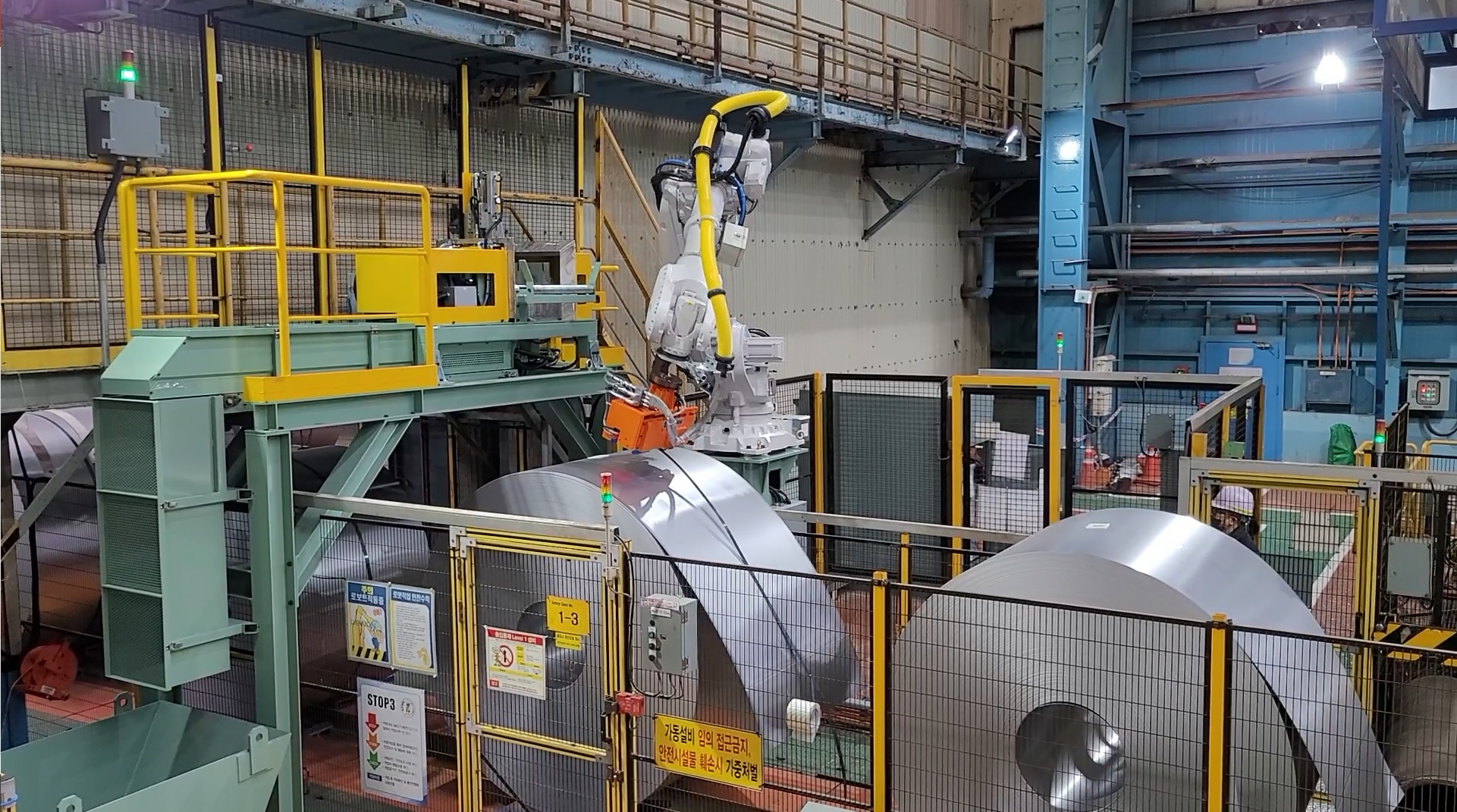
-
Safe workplaces with improved productivity achieved by rolling out industrial
robots to high-risk/high-intensity sites
-
Established the ‘Robot Automation Center’ to derive full-scale intelligent
factories based on industrial robots
POSCO DX (CEO Duk-Kyoon Jung) hosted ‘Robot Automation Business Media Day’ in Gwanghwamun, Seoul on the 18th and announced its plan to expand industrial robots to high-risk/high-intensity sites to improve safety and productivity and support the full-scale rollout of ‘Intelligent Factory’.
Earlier this year, POSCO DX expanded and revamped its existing robot-related organization into a robot automation center to develop, commercialize, and expand core robot engineering technologies geared to industrial sites. To enhance the competitiveness of POSCO Group’s primary business areas, such as steel manufacturing and secondary battery materials, the company plans to kickstart corporate investments, human resource development, and talent recruitment in the relevant fields with its conviction that the application of industrial robots and AI technology is a key element.
In deploying industrial robots to the field, a business operator is required to support integrated operations by linking with the existing integrated production management system (MES) and other basic systems, including analysis of the relevant workplace and process, optimal robot selection, and layout design consulting, and POSCO DX is taking on this role. POSCO DX, the only IT/OT convergence company in S. Korea, has differentiated itself by controlling robots catering to the process and securing high value-added capabilities of robots through software-oriented DX technologies, such as 3D and AI.
POSCO Group is prioritizing robots for the group's main production sites and is aiming to bring about safe sites above all else. Alongside Pohang Iron and Steel Company, POSCO DX has promoted the automation of the band cutter in the cold rolling process. The coils, which are produced by processing steel materials into thin sheets in the rolling process, are tied with bands to prevent them from unraveling during movement and shipped to each factory in the form of toilet paper rolls. However, in the course of removing the bands tied to the coils for reprocessing, the bands can bounce back strongly, inflicting injuries on workers. To prevent such safety accidents, robots were used instead of human labor, and with the automation of band cutting robots being implemented into stainless steel and electrical steel processes alike, besides cold rolling processes, it plans to further expand the rollout of robots.
In the stainless-steel process, when winding reprocessed products into coils, it is essential to insert reinforcing band pads into the sharp cutting edges at the ends, but this process poses a danger to workers who have to approach operating equipment. POSCO DX and Pohang Iron and Steel Company have implemented the automation of reinforcing band insertion robots to ensure worker safety and improve production efficiency of simple repetitive tasks. Vision AI technology accurately measures and analyzes the position and angle of the coil ends, and collaborative robots automatically perform the reinforcing band insertion work.
It has also strengthened cooperation with POSCO FutureM, which produces secondary battery materials. In particular, it has conducted tests to roll out the robot automation system for replacement of refractory container saggers that contain and bake cathode materials. Given the nature of the process, periodic replacement of saggers is essential, but the large quantities and high work intensity mean that replacement by deploying robots would greatly improve the process efficiency. Based on the test results at the Gwangyang cathode material plant, the two companies have been working closely together to roll out the automation system to the newly built Pohang NCA cathode material plant.
As the field application of robots from various manufacturers with different roles gradually gains traction, POSCO DX is securing an ACS (AGV control system) solution for integrated management, such as collaboration and work delegation between heterogeneous robots, and is fully committed to deriving field applications. The process of advancing core technologies for real-time control of AGVs (automated guided vehicles), an unmanned transport robot, and AMRs (autonomous mobile robots), an autonomous mobile robot, in industrial sites is well underway. The ‘large-scale swarm control’ core engine, which delegates work to AGV and AMR and quickly derives the optimal movement path within the workplace, has been developed in cooperation with ‘Dime Research’, and the cycle for processing status information and events of AGV vehicles was also curtailed. Additionally, the user interface (UI) was improved to enhance worker convenience, especially by enabling integrated management of AGVs.
As POSCO DX actively pursues technological advancements through the convergence of robots and AI, its work continues to improve the efficiency of robot work by accurately measuring and analyzing onsite equipment and process conditions with AI technology. It also supports the ACS solution, which controls AGVs and AMRs in real time, and AI-based work delegation and optimal path-setting functions, and also conducts tests to converge the equipment diagnosis AI with heterogeneous robot operation platforms.
The head of POSCO DX Robot Automation Center, Suk-jun Yoon, explained, “We are rolling out core solutions, such as robot control and operation platforms, and securing business references through collaboration between POSCO Group-affiliated companies and sustained partnerships with companies boasting specialized technologies.” He added, “We will strive to ensure that POSCO DX grows into a company specialized in intelligent factories beyond smart factories through unique robot automation technologies geared to industrial sites.”
